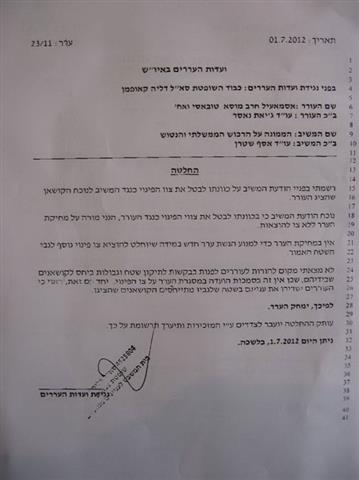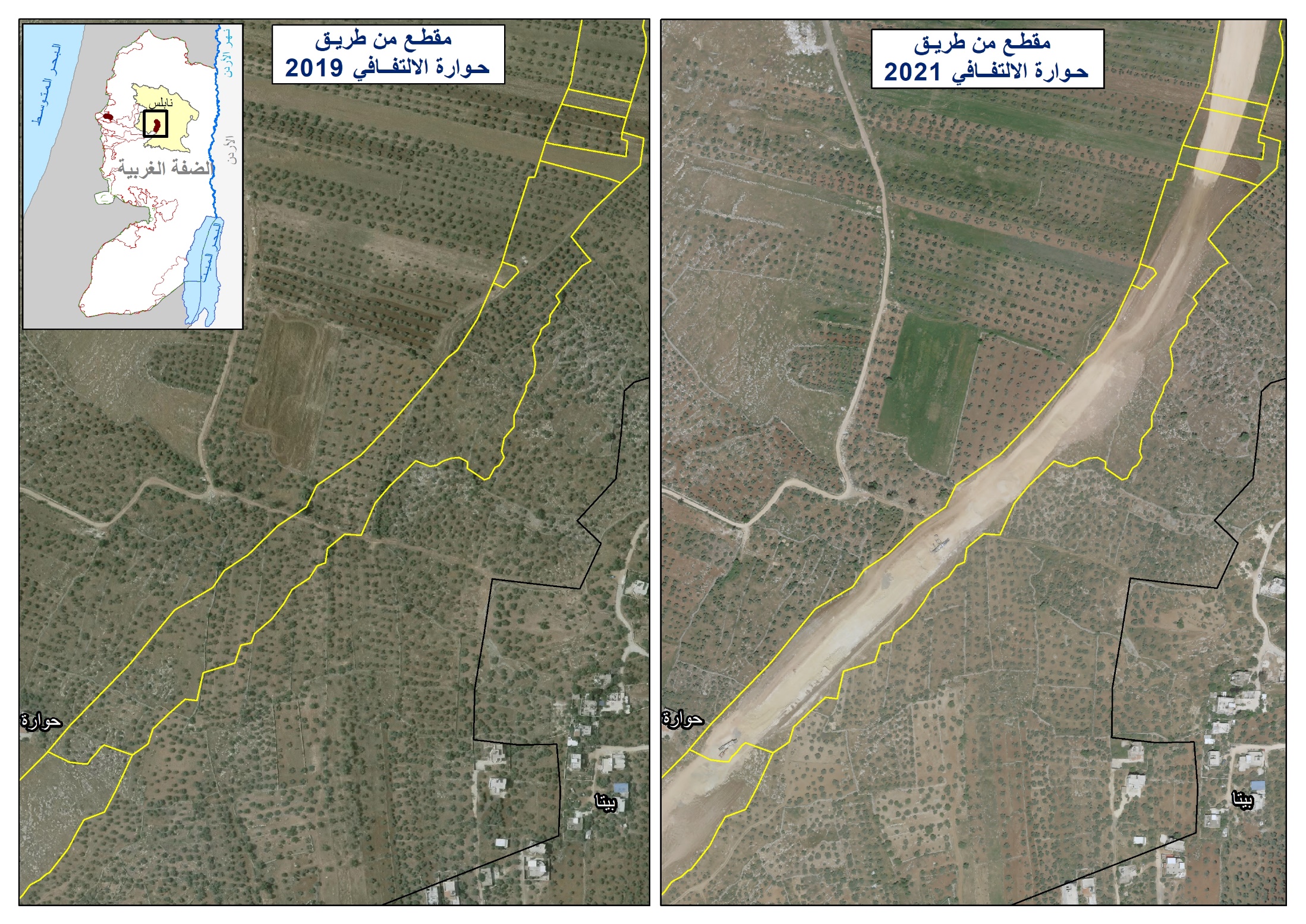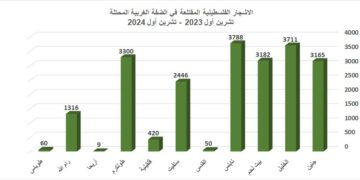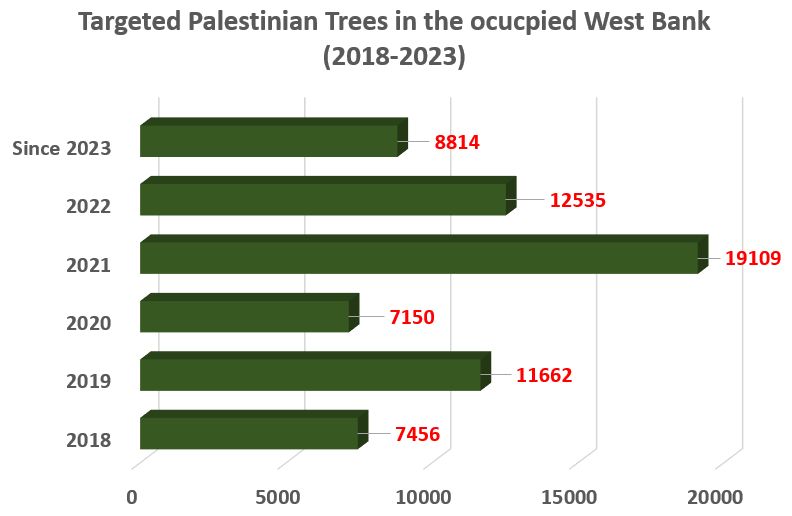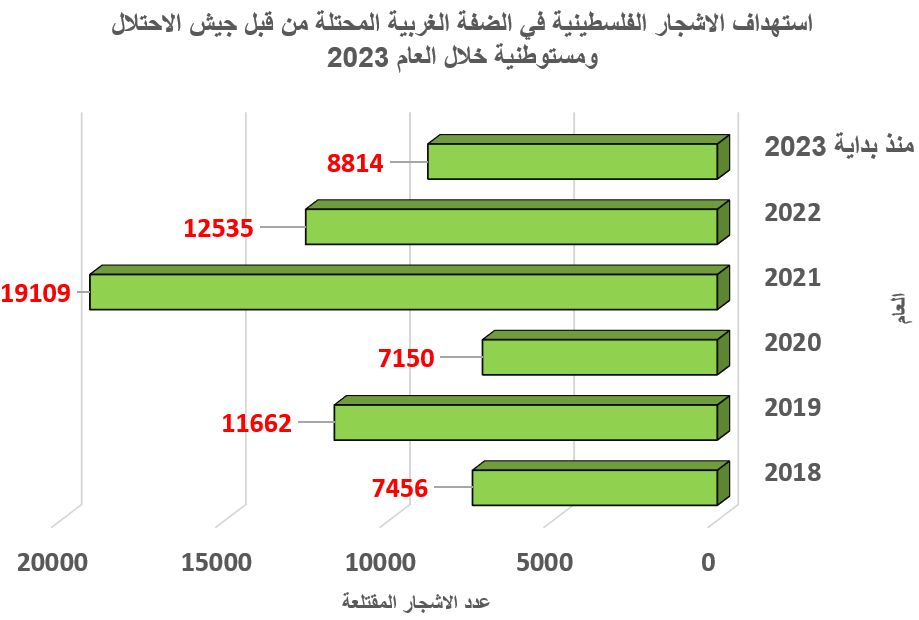Violation: uprooting olive trees.
Date: January 19, 2013.
Location: Al Tubasi – Hebron.
Perpetrators: colonists of Haggai.
Details:
On January 19, 2013, colonists of Haggai uprooted hundreds of olive trees in Khallit al Tubasi area to the west of Hebron. The colonists also pulled out the shaft door of one of the cisterns and stole it, in addition, they sabotaged a number of fences and retaining walls.
Picture 1-4: scenes of the attack
Ibrahim al Tubasi, one of the victims, said that he received a call from one of the neighbors informing him about the attack; he headed to his field to see that all the olive seedlings had been uprooted. He said that one of the guards of the colony forced him out of his land on the previous day and tld him that all the seedlings are to be removed soon.
Picture 5-8: attacked lands
He said that the victims filed official complaints to the Israeli Police which showed up to investigate the attack; Police tracked the assailant to Haggai colony where they found a number of uprooted seedlings.
The Police demanded that the victims head to the main Police station in Kiryat Arbaa colony to file and official complaint, which they did.
Picture 9-10: official complaint
In 2011, the Israeli Occupation Army served the residences of Khallit al Tubasi with eviction orders that were overruled by the Israeli Supreme Court which could not dent their ownership of the lands.
Picture 11-14: the ISC ruling
Table 1: victims:
No. |
Victim |
Seedlings |
Age (seedlings) |
Other aggressions |
1 |
Ibrahim al Tubasi |
134 |
1-2 |
|
2 |
Ibrahim T al Tubasi |
65 |
1 |
|
3 |
Yousuf al Tubasi |
60 |
3 |
|
4 |
Ahmad al Tubasi |
50 |
3 |
|
5 |
Issa al Tubasi |
50 |
3 |
|
6 |
Mousa al Tubasi |
50 |
1 |
|
7 |
Ismael al Tubasi |
80 |
1 |
|
8 |
Ahmad A al Tubasi |
45 |
1 |
Damaging a well shaft, retaining walls and fences |
9 |
Mousa M al Tubasi |
35 |
1 |
|
10 |
Ismael H al Tubasi |
15 |
5 |
Damaging a retaining wall |
It is noteworthy that the seedlings were planted in lands adjacent to Haggai colony; the owners planted the olives in an attempt to protect the lands from confiscation.

